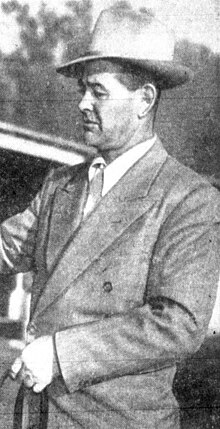| Ivan Parke | |
|---|---|
 Parke, circa 1950 | |
| Occupation | Jockey / Trainer |
| Born | November 1, 1908 Albion, Idaho, United States |
| Died | January 20, 1995 (aged 86) Gainesville, Florida |
| Resting place | Declo Cemetery, Declo, Idaho |
| Career wins | 419 (as a jockey) |
| Major racing wins | |
| As a jockey: Tulane Purse (1923) Breeders' Futurity Stakes (1923) Capitol Handicap (1923) New Orleans Handicap (1924) Blue and Gray Handicap (1924) Bowie Handicap (1924) Champlain Handicap (1924) Pimlico Cup Handicap (1924) Thanksgiving Handicap (1924) Piscataway Purse (1924) Tally-Ho Purse (1924) George Washington Handicap (1924) Ponce de Leon Handicap (1925) Wood Memorial Stakes (1925)
As a trainer:
American Classic Race wins: | |
| Racing awards | |
| United States Champion Jockey by wins (1923, 1924) United States Champion Jockey by earnings (1924) | |
| Honors | |
| National Museum of Racing and Hall of Fame (1978) | |
| Significant horses | |
| As a jockey: Altawood
As a trainer: | |
Ivan Harris Parke (November 1, 1908 – January 20, 1995) was an American Hall of Fame Thoroughbred horse racing jockey and trainer who won more races than any other jockey in the United States in 1923, as an apprentice, and again in 1924 when he also was the United States Champion Jockey by earnings. Parke trained the 1945 Kentucky Derby winner, Hoop Jr. and Jewel's Reward to 1957 American Champion Two-Year-Old Colt honors.[1]
Ivan Parke and four of his brothers had careers in Thoroughbred horse racing. Burley Parke, a jockey and outstanding trainer was also inducted into the National Museum of Racing and Hall of Fame. Both Charles and Monte were successful in their own right.
- ^ "National Museum of Racing and Hall of Fame". www.racingmuseum.org.